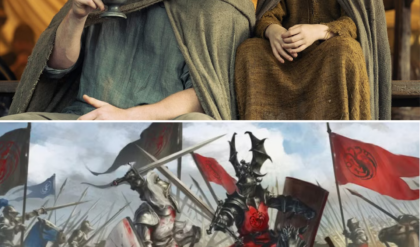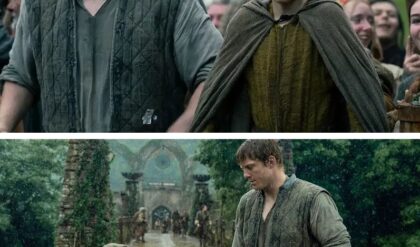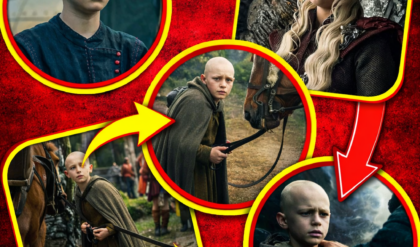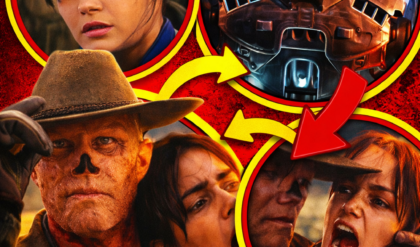💥 AAA Gaming Giants Are Crashing—And It’s Not the Economy, It’s the ‘Woke’ Overload! 😡
Picture this: $200M masterpieces that flop harder than a bad sequel, all because studios swapped epic quests for endless lectures on pronouns and privilege. Gamers are done shelling out $70 for “slop” that feels more like a diversity seminar than a damn game. From Concord’s $400M wipeout to Dragon Age’s non-binary nosedive, the backlash is real—and sales are tanking. Is this the death knell for big-budget blunders?
The revolt is here. Will studios listen before it’s game over? Click to uncover the flops shaking the industry… 👇
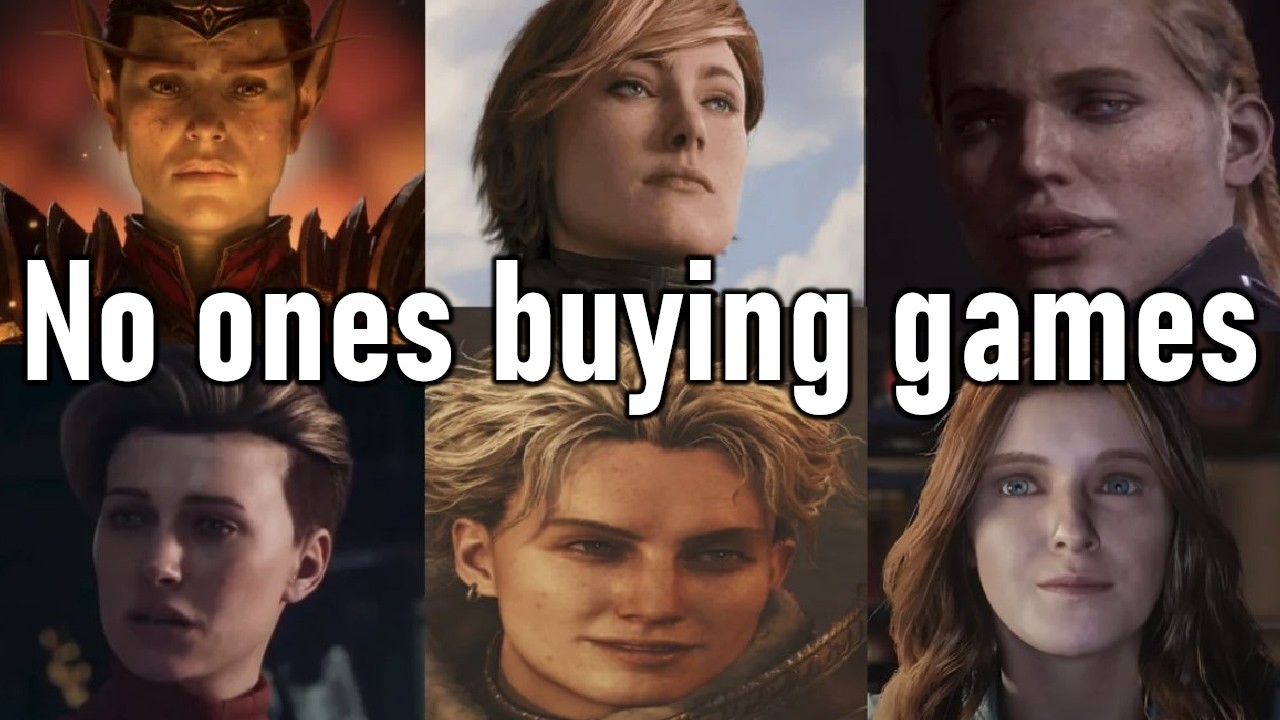
The video game industry, once a golden goose laying blockbuster hits like Grand Theft Auto V and The Legend of Zelda: Breath of the Wild, is staring down the barrel of its own making. In 2025, AAA titles—those sprawling, $200 million behemoths from the likes of Electronic Arts, Ubisoft, and Warner Bros.—are flopping left and right, with sales figures that would make even the most optimistic exec sweat. The culprit? Soaring development costs, live-service mandates, and a heavy dose of what critics deride as “woke slop”: forced diversity, equity, and inclusion (DEI) elements shoehorned into narratives, characters, and gameplay that prioritize messaging over merriment. Gamers aren’t buying it—literally. With over 35,000 layoffs since 2022 and studios shuttering like lights out on a bad level, the question isn’t if the AAA model is broken; it’s how long until it shatters for good.
Let’s rewind to the glory days. Back in the PlayStation 2 era, AAA budgets hovered around $10-20 million, teams were lean (100-150 devs), and hits like Grand Theft Auto: San Andreas or God of War delivered raw, unfiltered escapism. Fast-forward to 2025, and the landscape is a wasteland of excess. Development costs have ballooned to $200-300 million per title, fueled by hyper-realistic graphics, open-world sprawl, and the insatiable hunger for live-service features like microtransactions and battle passes. Publishers, beholden to Wall Street sharks like BlackRock and Vanguard, chase “guaranteed” billion-dollar returns, but the math doesn’t add up. Only a handful of games—think Hogwarts Legacy with its 34 million copies sold—break even, while the rest bleed cash. The result? A “hit-driven” market where 80% of launches flop, leaving indie and mobile games to pick up the slack in a $200 billion global industry.
Enter the “woke” factor, a lightning rod that’s amplified the disconnect. What started as post-2014 Gamergate backlash against perceived overreach in game journalism has evolved into a full-throated gamer revolt against DEI mandates. Studios, pressured by ESG (Environmental, Social, Governance) investing criteria from firms like the World Economic Forum, have infused titles with progressive themes: non-binary protagonists, race-swapped historical figures, and dialogue trees that read like TED Talks on privilege. Detractors call it “propaganda porn,” arguing it alienates core audiences—mostly young men—who crave unapologetic power fantasies, not sermons. On X, hashtags like #GamerGate2 and #WokeSlop have racked up millions of views, with users like @Grummz declaring, “Gaming has realized propaganda isn’t going to work anymore. We voted with our wallets.”
The evidence piles up like unread quest logs. Take Concord, Sony’s 2024 hero shooter: $400 million down the drain, shut down after two weeks amid backlash over its “unappealing diverse heroes” and DEI-heavy roster that felt more like a corporate checklist than a cohesive team. Peak players? Under 700. Then there’s Suicide Squad: Kill the Justice League, Rocksteady’s $200 million live-service flop, panned for “sanitized” casts and social-justice-infused banter that turned Harley Quinn into a therapy session. Servers went dark, and Warner Bros. wrote off the loss like a bad DLC purchase. Dragon Age: The Veilguard (2024) fared no better: Non-binary options and “ugly” character designs drew fire, selling under 1 million copies despite BioWare’s legacy. Even Star Wars Outlaws (2024), with its buggy open world and “diverse but sanitized” lore tweaks, limped to 1 million sales—half what was projected.
These aren’t isolated glitches. Forspoken (2023) bombed with ~1 million units moved, thanks to cringy DEI dialogue from its “unrelatable” lead, leading to Luminous Productions’ closure. Dustborn (2024), a road-trip game drenched in “preachy queer themes,” peaked at 500 players and was slammed as “propaganda.” Flintlock: The Siege of Dawn (2024) forced diversity into a historical siege setting, earning middling 72/100 Metacritic scores and forgettable sales. The pattern? Titles that lean into “representation” over gameplay see review bombs on Steam and Metacritic, with users citing “forced politics” as the kill switch.
Industry insiders aren’t mincing words. Moon Studios CEO Thomas Mahler tweeted in late 2024 that AAA is “dying” because devs have “lost sight of what made it great”—passion over politics. At GDC 2025, panels buzzed with execs admitting the “woke mind virus” has turned games into “lectures,” echoing Mario Nawfal’s viral X post: “NOBODY WANTS TO PLAY A WOKE LECTURE.” Layoffs tell the tale: 10,000 in 2024 alone, hitting studios like Arkane Austin (shuttered after Redfall‘s DEI-drenched disaster) and BioWare (down to under 100 souls). Square Enix’s Forspoken postmortem? A $100 million lesson in why “knee-jerk reactions to current events” tank sales.
But it’s not just ideology; economics are the real boss fight. Post-pandemic, sales slowed while mergers (Microsoft’s Activision buyout, Sony’s Bungie grab) ballooned overhead. Live-service obsession—endless Fortnite clones—has backfired; 90% of GAAS titles fail to retain players beyond month one. Remakes and remasters dominate, with originality starved: Silent Hill 2 (2024) sold well, but only because it ditched heavy-handed updates. Meanwhile, tariffs on hardware jack up console prices, and mobile gaming siphons $100 billion annually—cheaper, less preachy alternatives like Genshin Impact thrive without the baggage.
Gamers are voting with their wallets—and feet. On X, @LegacyKillaHD notes, “Anti-Woke movement has made its mark. AAA Studios fear being targeted.” Polls on Reddit’s r/KotakuInAction show 70% of 50,000 users skipping “woke” titles, opting for indies like Hades II or classics via upscalers. Clair Obscur: Expedition 33 (2025), a mid-budget turn-based RPG sans live-service slop, boasts the year’s highest Metacritic (92/100), proving quality trumps checklists. Even Baldur’s Gate 3 succeeded in 2023 by letting players opt out of its edgier elements—murder refugees, skip the sermons.
Defenders of DEI counter that “representation” boosts long-term engagement, citing The Last of Us Part II‘s sales (despite Abby backlash). But data disagrees: A 2025 IJOC study found “political messaging” correlates with 25% lower retention in Western titles, versus Japanese hits like Elden Ring that ignore the noise. Execs are pivoting: At Tokyo Game Show 2025, Ubisoft teased “back-to-basics” for Assassin’s Creed Shadows, scrubbing early DEI teases after Shadows‘ feudal Japan diversity uproar. EA’s 2025 investor call? “We’re recalibrating narratives to focus on fun.”
The human cost is stark. Devs, once passion-driven, now crunch under activist hires and ESG audits, per Medium exposés. “Woke values destroy everything,” laments a NeoGAF thread, blaming fascist-like conformity for joyless output. Indies shine brighter: Stardew Valley updates draw millions without a dime on marketing, while AA studios like Moon Studios thrive on $20-50 million budgets.
As 2025 closes, the AAA crash feels inevitable. Forbes warns of a “disconnect” wider than the Grand Canyon, with gamers fleeing to emulators and Steam sales. @BornLik23266 sums it: “Vote with your money. I’m not buying this woke crap.” Studios face a fork: Double down on slop and risk extinction, or rediscover the spark that made gaming magic? History favors the bold—and un-preachy. In this Darwinian digital realm, survival means listening to players, not lecturing them.
